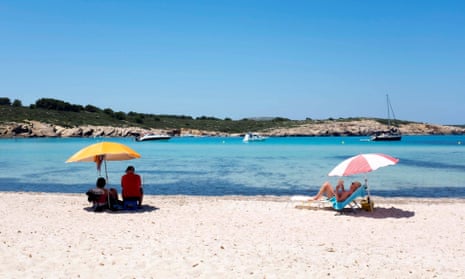How has the green list changed?
Malta, Madeira and the Balearic islands are the European destinations from which travellers arriving after 4am next Wednesday will not have to quarantine. The changes will apply across the whole of the UK, as they were adopted simultaneously by Westminster and the devolved governments in Scotland, Wales and Northern Ireland.
Malta is the only new addition to the green list, while Israel, Jerusalem, Madeira and the Balearics have been put on the “green watchlist”, meaning they no longer come with a requirement to quarantine but are at risk of being moved back on to the amber list.
Also placed on the green watchlist will be:
Anguilla
Antigua and Barbuda
Barbados
Bermuda
British Antarctic Territory
British Indian Ocean Territory
British Virgin Islands
Cayman Islands
Dominica
Grenada
Montserrat
Pitcairn Islands
Turks and Caicos Islands
And the red list?
Six countries have been added to the red list, which means that only British residents and nationals will be allowed to travel from them, and must quarantine for 11 nights in a hotel for 11 nights at a cost of £1,750. They are:
Dominican Republic
Eritrea
Haiti
Mongolia
Tunisia
Uganda
Why are these changes being made?
The countries added to the red list “present a high public health risk to the UK” from variants or very high infection rates, the government said, adding that it had followed the advice of the Joint Biosecurity Centre.
What about the amber list?
The Department for Transport has formally announced the intention, hinted at earlier this week by senior ministers including Boris Johnson and Matt Hancock, that the quarantine requirement will be dropped for travellers returning from amber list countries and who have had two Covid jabs.
However, no date has been set for when the change will come into force – only “later in the summer”.
Ministers are understood to be conflicted over easing restrictions for those who are fully vaccinated while not wanting to encourage too many people to bring forward their second dose, placing strain on supplies in the run-up to 19 July. This is the date by which the prime minister has said all adults should have been given a first injection, in line with the planned final lifting of restrictions under his roadmap.
The changes in rules for arrivals from amber list countries who are double-vaccinated will commence in phases, starting with UK residents. At the same time, the government’s advice to people not to travel to amber list countries will be scrapped.
When is the next update?
The lists are reviewed every three weeks, meaning that the next announcement will be on Thursday 15 July.
While ministers say they are trying to leave some time between updates to avoid the scenes of last summer when travel restrictions were changed at much shorter notice, they have insisted they will act more swiftly if necessary.
